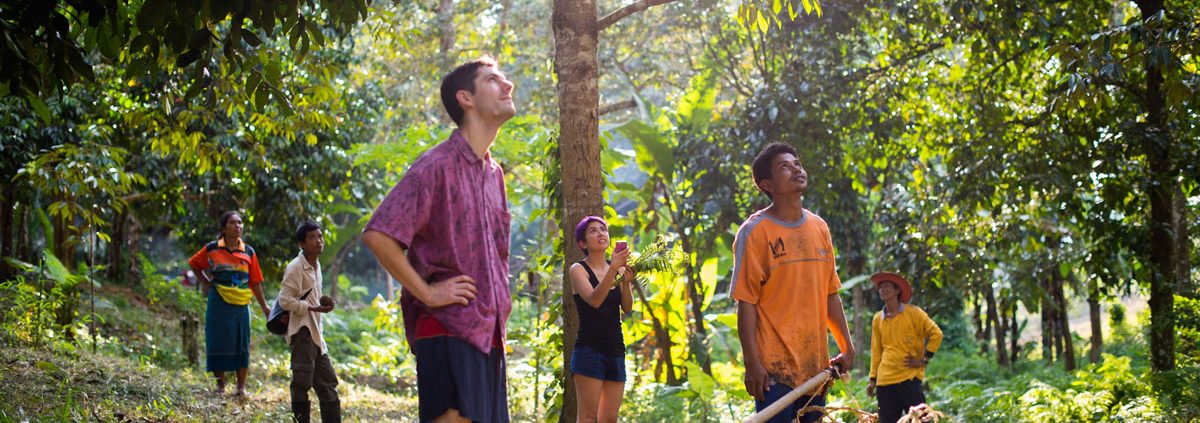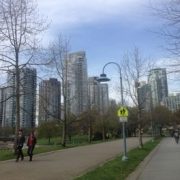Growing Up Hasn’t Gotten Old
Observing a durian harvest in Ban Ta Kuhn, where I celebrated my birthday this year (photo credit: Nick Grady-Grot)
By Jason Karpman MURP ’16
I turned 30 this summer. While the new decade doesn’t cause me much anxiety, it does stir up a bit of self-reflection. I’ve certainly had bigger milestones in my life (physical, intellectual, spiritual), but I recognize that these decadal markers are the convention by which we measure our progress towards the finish line, so I can’t help but look back to see how far I’ve run.
When I think about my life, I don’t generally relate to it as a continuous thread. It feels more like a series of metamorphoses, in which I shed one earth suit and put on another. The ten-year-old version of me, for example, came and went a long, long time ago, and while we still share some of the same biological material, I relate to him like a dead relative: present in memory, but physically gone.
This summer, however, I got an uncanny feeling that one of my younger selves might be back from the dead. In my single-digit years, I was obsessed with trees, and spent so much time in trees—climbing them, building forts, harvesting fruit—that I actually felt cheated by evolution (bipedalism seemed grossly overrated). With age, I eventually became domesticated, and began climbing the workplace ladder, building spreadsheets, and harvesting frozen smoothie mixes from Whole Foods. Now thirty, and spending my summer working at the World Agroforestry Centre (ICRAF) on community reforestation projects, it suddenly dawned on me that I’ve come full circle. Trees are once again at the center of my life.
It feels good to reconnect with an old obsession. For much of my adult life, I turned my back on nature, and embraced a more urban identity; I lived in New York, worked as a lobbyist on criminal justice reform, and decompressed by going to museums. It was a time when I drew great inspiration from the wonders of human accomplishment—skyscrapers, democracy, art, etc. Those things certainly still impress me, but my work at ICRAF has reminded me where human achievements stand in comparison to nature’s handiwork, which benefits from 4.5 billion years of research and development. Trees, for example, are a marvel in engineering, transforming human waste, from the carbon dioxide we exhale to the biosolids we expel, into valuable goods, such as food, fuel, and fiber. Learning about the ecological processes that underpin each of these feats fills me with an incredible sense of awe, the kind of awe I haven’t felt since a kid. Glad to know he’s still kicking.









